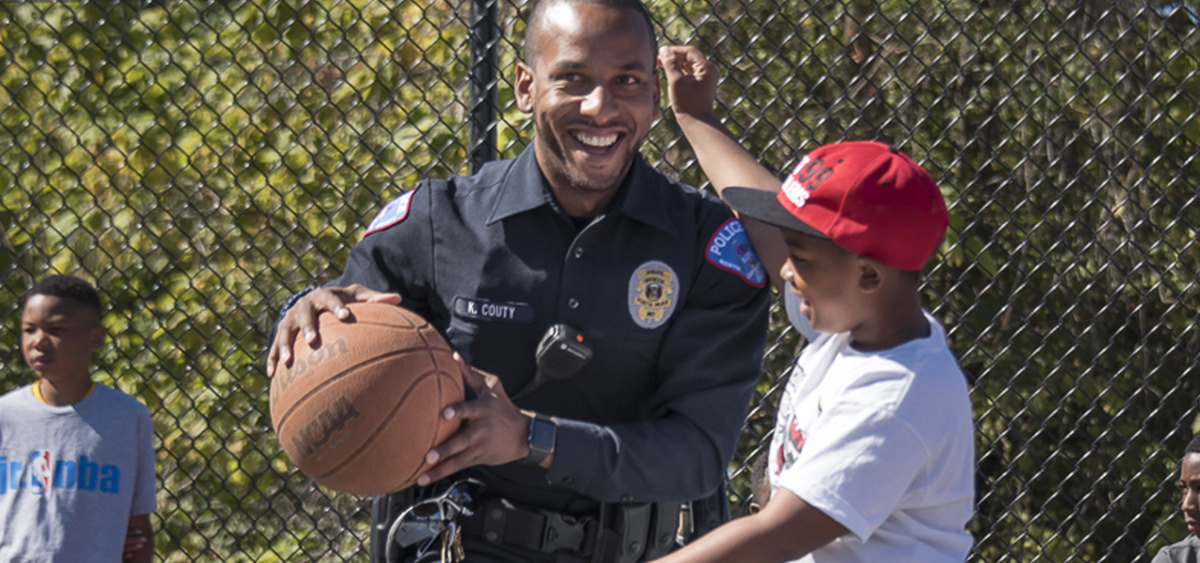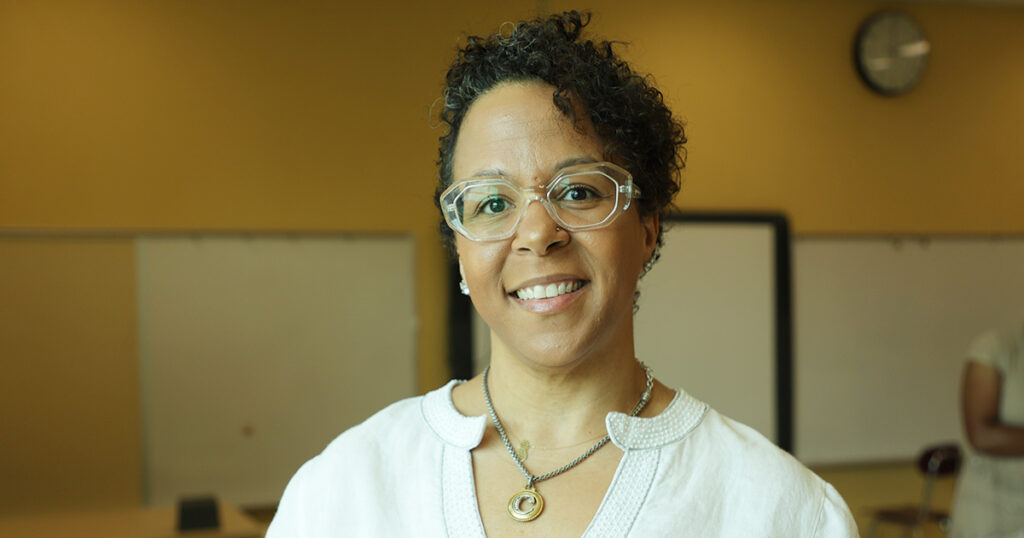For the City of Wellston, 2021 marks the start of an ambitious four-year, $635,000 project to reduce crime and strengthen police-community relations.
The Wellston Forward project focuses on three overarching goals:
- Building trust and communication between residents and the North County Police Cooperative, which provides law enforcement in Wellston.
- Implementing “hot spot” policing to prevent and solve crimes.
- Supporting community engagement in crime-reduction activities.
“This grant will allow us to do so many great things to protect our citizens, police department, and our business sector,” said Wellston Mayor Nathaniel Griffin. “This is truly a blessing that is greatly appreciated and needed.”
Wellston Forward is funded through the Edward Byrne Memorial Justice Assistance Grant Program—the leading source of federal justice funding at the state and local levels. It brings together four partners: the City of Wellston, Beyond Housing, the North County Police Cooperative, and the Department of Criminology and Criminal Justice at the University of Missouri-St. Louis.
Together with Young Voices With Action, the Wellston Tenants Association, the Easton Development Corporation, and resident-led community groups, these partners will plan evidence-informed strategies to address serious violent crime in Wellston within a community-based crime reduction model.
“In the future, I believe we can strengthen trust and relationships by continuing to support and promote our Neighborhood Watch program, Citizen Academy program, and some police and youth interaction programs,” Griffin said. “We will work to form a partnership on how our community should be policed and to open lines of communication—because the community has part ownership of the policies and procedures we’ve agreed upon.”
Youth involvement is especially important, and Young Voice With Action is “equipping young people to co-lead in this,” said President Farrakhan Shegog. “This grant gives an opportunity for everyday people on the ground to be part of the conversation to make our community safer.”
The Easton Development Corporation will be the conduit for engaging small businesses and elevating infrastructure improvements that will deter crime. The base for involving residents will be the Wellston Tenants Association, an advocacy group that formed in 2018 around the issue of public housing and is part of a federal $30 million redevelopment agreement announced in September.
Current Challenges on the Ground
Among the municipalities in the 24:1 Community, Wellston faces particularly serious public safety challenges. Almost half of its 1,775 residents live in public housing—and several of the crime hot spots identified in preliminary research for the grant overlap with those public housing units.
Wellston ranks last in the entire state of Missouri on the Wealth Index Rating, which considers factors such as household income, net worth, and the value of material resources. Wellston’s median household income is $22,670, and 61% of its children live below the poverty line. The pre-COVID unemployment rate was 19.6%. More than a quarter of the housing units in Wellston are vacant.
In addition to these challenging economic circumstances, Wellston’s residents experience higher rates of personal and property crimes than the rest of St. Louis County year after year. Many of the perpetrators do not live in Wellston, according to the North County Police Cooperative, which took over policing after the city’s small police department disbanded in 2015.
“The North County Police Cooperative continues to be very proactive and committed to community policing—not just in language, but in deed,” said Chris Krehmeyer, president and CEO of Beyond Housing, a comprehensive community development nonprofit that operates in 23 North St. Louis County communities, including in Wellston. “We have a tremendous relationship with them.”
However, the police department’s budget is based on property and sales taxes for the area served—and in Wellston, this tax revenue is much lower than in the surrounding communities and has been declining for decades. In addition, COVID-19 has created budget concerns for Wellston’s municipal government, just as it has for communities across the region, exacerbating already difficult circumstances.
Connecting Research and Results
A key to the project’s success will be identifying chronic crime hot spots within Wellston and then studying how successful the law enforcement and community engagement strategies are in dismantling those hot spots. The most sustainable strategies will be implemented for long-term results.
Data about crime and law enforcement activity in Wellston will come from the North County Police Cooperative. Beyond Housing will map the data, and UMSL will document changes in crime and related outcomes over time. “We’re thrilled to have UMSL on board to support our efforts,” Krehmeyer said. “This will get us to the next level of rigor and evaluation.”
Krehmeyer is optimistic that the proposed strategies—from enhanced lighting to license plate readers in police cars to wrap-around support services for families—will yield results. “Wellston is not very large, so if we can get the handful of folks committing crimes off the streets, that will be a fantastic thing.”
Wellston’s Mayor Griffin agrees. He points to safety interventions like improved signage to deter dumping and speed bumps for traffic control as positive ways to make the Wellston Forward project visible while the other strategies—like increasing patrols with more officers on the streets and in hot spots—are being implemented.
“Applying problem-oriented policing in hot spots has been shown to reduce crime for a greater time period and by a larger amount than increasing the level of traditional police action,” Griffin said. He’s also a supporter of the comprehensive services under the umbrella of community advocacy. These services will be available before, during, and after a crime has happened, regardless of whether a victim reports a crime or not—and even when there is no criminal case at all.
“It strengthens the idea that police and the people of the community should be partners, not opponents,” Griffin said.
Beyond Housing will manage the Byrne grant from the Department of Justice, including collecting and reporting performance data, and will facilitate community engagement. Through its proven model for creating meaningful and lasting change, it has developed the deep, trusted relationships needed to address the complex challenges of reducing crime in Wellston.
The Wellston Forward project is a resounding example of Beyond Housing’s work to create a stronger, more equitable, and prosperous St. Louis.






